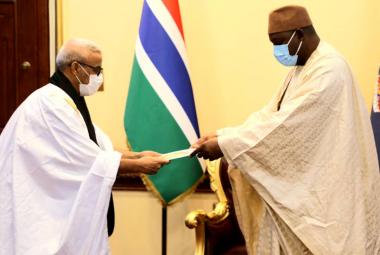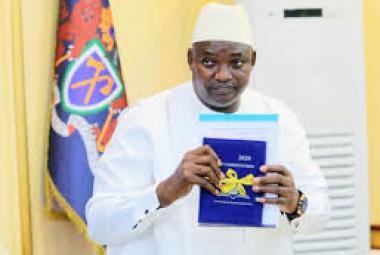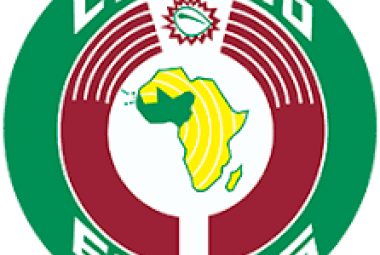|
The Chief of Mission at the International Organisation for Migration (IOM) The Gambia has said that the goal of the Standard Operating Procedures (SOPs) is to assist the government to manage migration in a sustainable and humane manner. Ms. Fumiko was speaking at a day-long national ratification workshop of SOPs on the protection and assisting of child migrants in The Gambia supported by the IOM under the Africa Regional Migration Program project. It was funded by the Bureau of Population, Refugees, and Migration of the United States Government. “The IOM has trained 51 (31 male and 20 female) government and civil society actors on migration-related topics on bilateral labour agreements, ethical recruitment standards, and labour exploitation. The project also supported the development of a contingency plan on emergency migration management for West Coast Region and tested it through a simulation exercise to improve the Regional Disaster Management Committee’s capacity to prepare for and respond appropriately during crisis while ensuring protection of vulnerable migrants,” MsFumiko explained. On the aims of the National Child Protection Strategy, she said it is to ensure that all those engaged in child protection actions (whether in the formal or informal sector) have the knowledge, skills, and tools to carry out their responsibilities. “To support this, IOM has been providing technical assistance to the Department of Social Welfare in developing SOPs on the protection and assistance of child migrants. Just to give you a background statistics, the IOM 2017 report shows that 16,500 migrant children arrived in Italy in 2015 and 72% of them were unaccompanied. Also, 13.8% of the total population of refugees and unaccompanied and separated children (UASC) who arrived in Italy in 2016 and 2017 originated from The Gambia. This situation raises a need for protection and assistance for migrant children,” she disclosed. She added that the objectives of the SOPs is to provide step-by-step coordinated and standardised instructions to guide social workers carry out their interventions related to child migrants. “General situation and potential risks faced by UASC underscore the need to ensure their adequate protection and assistance in their migration pathway which makes the development of these SOPs relevant,” she told the child migrants. The Head of Child Care Unit MrsMariamaCeesay admitted that the process of the formulation of the SOPs for the protection, return and reintegration of migrant children to The Gambia has been intensive. “The Government of The Gambia has been committed in the development as its purpose is beneficial to strengthen the work practice of all respective stakeholders, MrsCeesay stated. She noted that the government, through the Ministry of Women, Children and Social Welfare, continues to reaffirm its commitment to creating a child-friendly environment and achieving the SDGs. |







